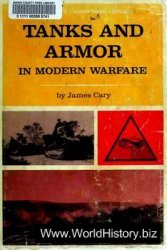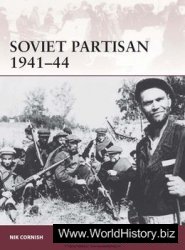The second Cold War of the 1980s brought a renewed propaganda battle in which one of the West’s strongest tactics was to point to the post-Helsinki dissident movements in the East. The period also saw a resurgence ofthemes of the Truman/Stalin period in the fiction of both East and West. American political culture reflected the popular culture of the previous phases of the Cold War. Patriotic genres were rediscovered. Empty, ambiguous, or even dissenting stories were given new meanings. President Ronald Reagan echoed Star Wars when he spoke of fighting an evil empire, and Senator Edward Kennedy appropriated the film’s title to mock the administration’s strategic defense initiative. Ironically, the nickname stuck and seems to have rather enhanced the image of that project.683
Western popular culture in the second Cold War delivered some new twists on old themes, as the spy thriller overcame its preoccupation with the dark side of human nature to embrace a fixation with technology in the new genre of techno-thriller. Pulp fiction writers and readers embraced the post-nuclear war survivalist story. These new genres displayed a right-wing bias, but there was no shortage of books or films maintaining the spirit of dissent seen in the 1960s and 1970s. Opposition to nuclear weapons flourished. But Western governments had found a way to wage the Cold War in the presence of public skepticism and dissent.
In the new propaganda war between East and West, sports became especially politicized. The United States boycotted the Moscow Olympics in 1980, and the Soviet Union stayed away from the Olympic Games when they were held in Los Angeles in 1984. The Soviets also made extensive use of disinformation, circulating damaging rumors of assorted conspiracies and assassination plots, most famously claiming that the AIDS virus had been created in an American bio-war lab. The United States responded with an inter-agency effort to expose Soviet fabrications, and President Reagan told Mikhail Gorbachev that he needed to cease Soviet disinformation practices.
The international exchanges survived the renewal of tension. They became ever more significant avenues for increasing Soviet awareness of the West and allowed the world to see exactly what was happening in the East. As the Soviet economy fell ever further short of Moscow’s promise, the dissident impulses which had been coded in the novels and films of the 1960s and 1970s became explicit as Helsinki energized a new generation of protest. Filmmakers like Poland’s Andrzej Wajda were feted around the world. Meanwhile, American popular culture in the form of blockbuster movies and hit television shows waxed ever stronger presenting a vision of how life might be different.
Western broadcasters played a special role in the denouement of the Cold War. In April 1986, the BBC, RFE/RL, and Voice of America hit home as never before when they carried news of the accident at the Chernobyl nuclear power plant near Kiev to a country whose government remained silent on the story for many days thereafter. As change gathered pace inside the Soviet Union, Western broadcasters told the people of the East what they were missing materially and politically in the West, encouraged dissent, and enabled the dissidents and their countrymen to watch the progress of their neighbors as they too struggled for a better life. A chain reaction followed. It was fitting that the Cold War, which had for so much of its course rendered the people impotent spectators, ended with the people acting and governments, both East and West, watching in amazement.
Popular culture had played an unprecedented role in the Cold War. It was mobilized and manipulated by the bureaucracies ofthe era, it was deployed by the artists who wished to engage with the great issues of the conflict, and it became a space in which dissenting views could be developed and disseminated. Some of the cultural works created in the process - the writing of Orwell or Greene, the movies of Wajda or Kubrick - transcend their Cold War context, too, but plenty of other Cold War texts merely show the willingness of artists to toe the official line or pander to the prejudice of the masses. There is a certain parallelism between the propaganda of the two blocs in the Cold War. They faced much the same internal turf wars. They traded in similar stereotypes. Both became adept at speaking without really learning to listen to their target audiences. The United States won the race for the image and reality of material prosperity and the USSR manifestly lost, but there was an irony in the victory. In success, the US government neglected its tools of diplomacy, slashing budgets to gain a swift peace dividend and downgrading USIA by folding it into the State Department. The experience of "victory" in the cultural Cold War became a crude talisman of American rectitude rather than a wake-up call to remain engaged with ordinary people around the world. Other players - specifically the European agencies of public diplomacy - fared much better in the post-Cold War world.




 World History
World History









